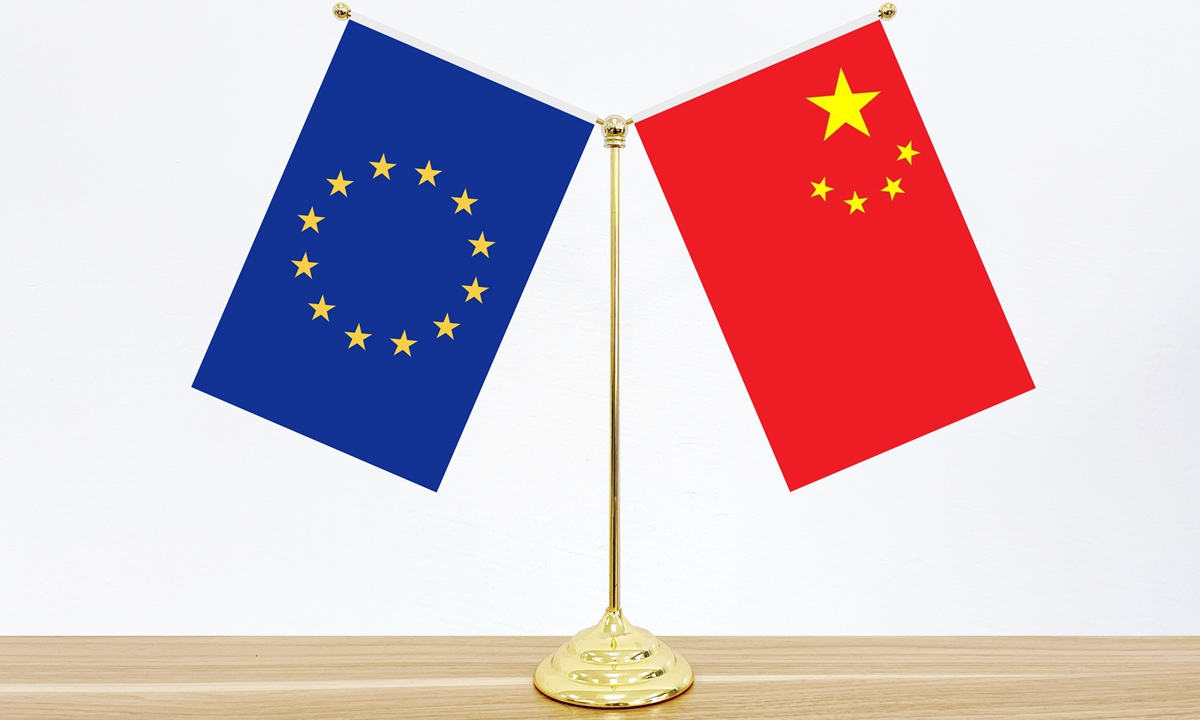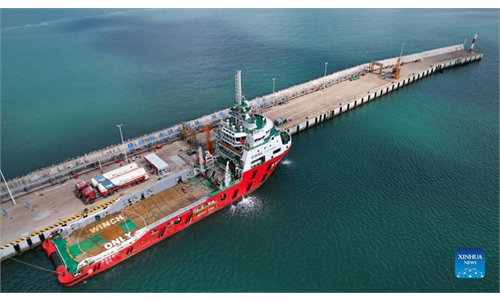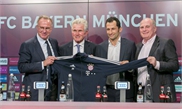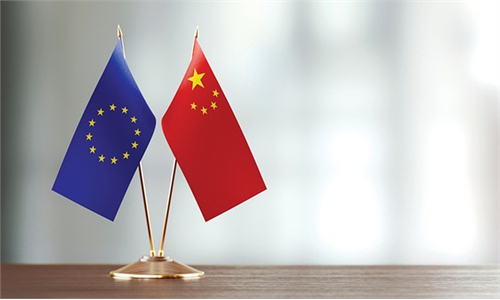European FDI into China shows 'resilience, concentration,' defies decoupling calls
Investment defies decoupling calls, will maintain momentum: observers

Photo:VCG
Foreign direct investment (FDI) from Europe into China is showing a trend of resilience, with larger companies doubling down on investment as the market environment becomes more competitive and with more firms spearheading localization strategies in a wide range of sectors ranging from supply chain to employee teams and administrative capacities, a business report showed.
Observers said the report underscores indispensable and strengthened economic ties between China and Europe, which defies decoupling calls in Brussels and some discord in bilateral relations. The importance of the Chinese market to European firms could grow further, they said, given the country's standing as the world's largest manufacturing powerhouse and its resilient supply chain, which has withstood the test of three years of disruption from the pandemic.
Also, as rising geopolitical tensions and runaway energy costs lapsed into growing anxiety among European companies over "de-industrialization" in the European continent, a host of European companies have been considering supply chain relocation. China could be one of the most promising destinations, analysts said, predicting that certain energy-intensive and manufacturing sectors will continue to record stellar FDI inflow in the coming years.
According to the report titled "The Chosen Few: A Fresh Look at European FDI in China" released by New York-based research firm Rhodium Group, European FDI into China has been resilient in terms of volume, and is concentrated in such sectors as automotive, food processing, pharmaceutical and biotechnology, chemicals and manufacturing, becoming a hotspot for investment from 2018 to 2021.
This concentration is also demonstrated in the portfolio of investors and source of countries. For example, the top 10 European investors accounted for 71 percent of the annual FDI transaction volume between 2000 and 2021, and four economies in the continent - Germany, the UK, France and the Netherlands - jointly represented 89 percent of European FDI in China during the same period.
Riding on the bullish momentum built over the past years, EU companies' investment in the world's second-largest economy also soared in the first eight months of 2022. According to data released by China's Ministry of Commerce on Thursday, EU's FDI inflow into China jumped an astonishing 123.7 percent year-on-year from January to August.
The rosy data is partly fueled by the construction of new plants by German multinational chemical company BASF in Zhanjiang, South China's Guangdong Province. The site, with a total investment of 10 billion euros ($10 billion), will be the largest single investment by a German enterprise in China.
"Most of the major investors in the Chinese market are large international companies, and a lot of them have long experience on the ground in China, so they feel comfortable investing, re-investing and doubling down on the market," said Agatha Kratz, a director at Rhodium Group who heads Rhodium's China corporate advisory team, at an online report launch event jointly hosted with the EU Chamber of Commerce in China. She added that many such investors are scaling up through greenfield investment.
Meanwhile, heightened competition pressure in the Chinese market is also spurring more investment from European companies that want to consolidate their position, and a host of European enterprises are also speeding up localization strategies as a result of policies and growing geopolitical risks, Kratz said.
The report painted a mixed outlook on EU's FDI into China. While China's easing epidemic situation could facilitate cross-border investment activity, geopolitical risks continue and China's economic growth could also slow down, which could combine to create uncertainties on these prospects.
But Chinese observers say there is no doubt that Europe's FDI into China will maintain its momentum, and the trend could even widen further if political elements are factored out.
"We will see rapid expansion in fronts that are subjected to fewer political risks, such as vehicle and consumer products, while in high-tech sectors that are allegedly concerned with economic security, investment could slow down or even stall," Cui Hongjian, director of the Department of European Studies, China Institute of International Studies, told the Global Times on Tuesday.
Jörg Wuttke, the president of EUCCC, told the Global Times on Friday that European businesses hope they can "do more given the size of the Chinese economy" as there is a mismatch between the economic potential and the level of European investment.
Relations between China and Europe have endured some bumps in recent months. According to a Reuters report in early September, Germany's economy ministry was considering a range of measures to reduce German companies' reliance on China.
EU companies are at a crossroads, and they tend to surmount external complicated geopolitical factors and make wise decisions from a cost-effective and risk-aversion perspective, Cui said.
The stakes of investing in China's supply chain are also particular high, as the EU bloc has been grappling with a bruising energy crisis and a ruinous recession, which has brought the operations of a number of fertilizer, aluminum and steel local factories to a halt. Belgian Prime Minister Alexander De Croo warned that this could present severe risks of "de-industrialization and… fundamental social unrest," Bloomberg reported.
And as a result, some European firms are reportedly considering shifting production line out of the continent, with Chinese market being a potential candidate.
Some Chinese businesspeople said that orders from European clients have jumped by 20 percent this month. They have also quickly grasped European businesses' increasing emphasis on energy-intensive and high-tech supply chains such as organic chemicals, electronic and mechanical equipment and auto parts, according to media reports.



